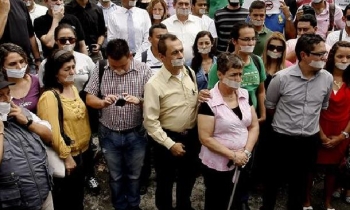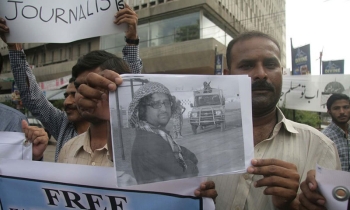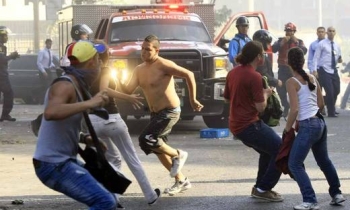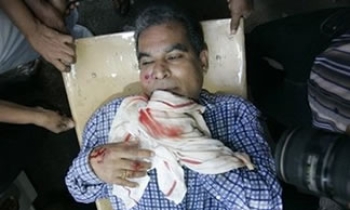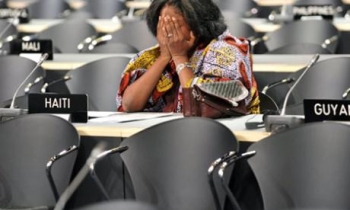Natural disasters, whether in the form of storms or tsunamis, make no distinction between developed and developing countries. However, in the face of Hurricane Katrina, the world's richest and most powerful nation was expected to put all the resources at its command to protect its people. Tragically, this did not happen in New Orleans where thousands are reported dead. Despite the early warning signals, the governments, State and federal, fell devastatingly short of the minimum demanded by the crisis. In the absence of any concerted state initiative to evacuate people from vulnerable areas, thousands of poor people, predominantly blacks, were trapped in hell-like conditions. Those who stayed behind did so not out of choice: they had nowhere to go and absolutely no means to get away. Both the State and federal governments failed shamefully to recognise the seriousness of the crisis until it was too late for effective intervention. The superpower was reduced to seeking international help for blankets, food, medicines, and trucks. Not surprisingly, the Bush administration is now on the defensive, fending off charges that the delayed response was on account of the colour of the skin of the trapped people. Katrina has reopened the old wounds of racial discrimination – and brought home to Americans the ugly truth that the disparity between the privileged and the underprivileged could also be the line separating those on safe ground from those in a watery grave.
Most of the catastrophic failures in responding to this crisis point to misplaced policy priorities. As the American economist and columnist, Paul Krugman, has noted, "the Federal Government's lethal ineptitude...was a consequence of ideological hostility to the very idea of using government to serve the public good." With the neo-liberal mantra that an interventionist government is part of the problem, and not the solution, being elevated as the guiding philosophy of the Bush administration, tax breaks for the rich have translated into cuts in government services for the poor. Among the casualties of deadly spending cuts was the budget of the Army Corps of Engineers for New Orleans. Dykes and levees, deprived of necessary repairs, gave way in the hurricane, claiming thousands of lives. The lawlessness and violence in the days following the disaster was not just because of the delay in sending adequate National Guard forces. The insensitivity of the federal, State, and local authorities fuelled anger among the desperate folk. Looting grocery stores became an act of survival and sniping at rescue teams an expression of protest. Ironically, while Katrina showed up the United States as no better than an underdeveloped country in disaster management, there was no such lack of differentiation in the impact the hurricane had on the people of New Orleans. The rich had the resources to get away in time, and the poor – no surprise here – were left to battle for survival and die in heart-rending numbers.

